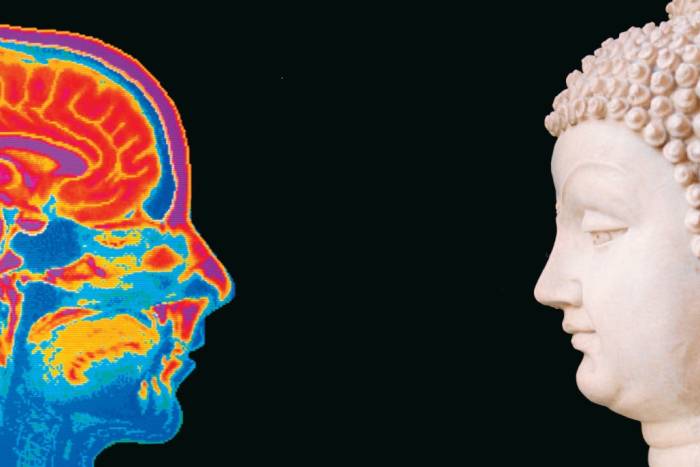Je Refuse: On Sartre’s Rejection of the Nobel Literature Prize
Sartre left an intriguing act for posterity: rejection of the world’s most important literary institution.
Jean Paul Sartre, philosopher, novelist and French playwright, one of Existentialism’s pillars, had a problematic relationship with institutionalism: the originality of his thought, the accuracy of his analysis, and the lucidity of his political consciousness, among other factors, made him an important model for French intellectualism.
His communist filiation, however, led his critics to make coarse caricatures of him and his work. The support he gave Fidel Castro, Che Guevara and the Cuban Revolution were a milestone of the 1960s. Therefore, by rejecting the Nobel Literature Prize in 1964, as he would explain in a statement, he was maintaining his political independence from the consequences which such an award could have reflected in the causes that mattered to him.
This attitude is based on my conception of the writer’s enterprise. A writer who adopts political, social, or literary positions must act only with the means that are his own—that is, the written word. All the honors he may receive expose his readers to a pressure I do not consider desirable.
A name —any name— is already a pact made with the history of a genealogy, a family and, in time, that name adopts militancy and associations we can’t always avoid. In Sartre’s case, his rejection of the Nobel was not an attack against the award itself; instead, it was the continuity of his thought. Let us remember that, in 1945, Sartre rejected the Legion of Honor for similar reasons, and he even said that he would reject the Lenin Prize (the Soviet Bloc’s equivalent to the Nobel) if it had been given to him.
Sartre was not the only writer that rejected the Literature Nobel. George Bernard Shaw did so in 1926 because of the scandalous amount of money it awards since, in his own words, “I have sufficient money for my needs.”
“If I sign myself Jean-Paul Sartre it is not the same thing as if I sign myself Jean-Paul Sartre, Nobel Prize winner,” he said in one of the texts where he explains the scandalous gesture, “The writer must therefore refuse to let himself be transformed into an institution, even if this occurs under the most honorable circumstances, as in the present case.”
For Sartre, the rejection of the Nobel and Lenin Prizes (if they had given him the latter) would have encompassed a symmetrical gesture to support “The peaceful co-existence of two cultures, the East and the West”, although, when he spoke of the East, he specifically meant Russia. But the most visceral reason is in the Sartre by Himself documentary, where even the visceral becomes congruence:
Considering my political performances, the bourgeoisie establishment wanted to cover up my “past mistakes”. We have an opening! And then they gave me the Nobel Prize. They “forgave me” and told me I deserved it. It was monstrous.
As a matter of fact, according to legend, De Gaulle forgave Sartre after the philosopher participated in the events of May, 1968, in France, with a phrase which, as a compliment to Sartre, allows us to discern what writers mean —at least symbolically— to the powerful: “You don’t arrest Voltaire.”
Related Articles
Why shrinking the size of life is synonymous of well-being
One of the great misunderstandings regarding modern spirituality is that to achieve it requires many things: readings, food, exercise, travel, groups and techniques. But perhaps it should be suggested
What is energy medicine yoga?
Energy Medicine Yoga (EMYoga) is slightly different from other types of Yoga, but it provides the same benefits in addition to a few very specific ones. One of them is that it gives you much more in
Red tea, the best antioxidant beverage on earth
Red tea is considered to be the most unusual of teas because it implies a consistently different preparation process. ––It is believed that its finding came upon surprisingly when traditional green
Is the internet on the verge of self-awareness?
More than 50 years ago, Marshall McLuhan described technology as an extension of our brains, constantly mutating and branching out. “These new media have made our world into a single unit,” the
How art can help us to age, healthy
Perhaps many of us already well know the formula for aging in health and wellness. A balanced diet and, as much as possible, one that’s natural. Keep our brains active and stimulated. Preserve and
Earthanima: documenting the living language of nature
The basic intuition that the Earth is alive and that nature has a language through which it communicates with us is what prompted this wood-art project named Earthanima. For the past couple of years
Dialogue with the Dalai Lama on science and spirituality
The Dalai Lama has been interested in science since he was a child. Over the years he’s visited many laboratories and has attended conferences that discuss consciousness from the scientific point of
Brian Eno's literary recommendations to rebuild society
Artists and authors often get asked what books or records they’d take with them to a deserted island. On principle, this is naturally an extreme anthology: urgency and tragedy guide its selection. It
Bill Mollison, natural ideologue and father of permaculture
Permaculture has established itself as a path towards communitarianism, but one that is in full symbiosis with nature. In practice, it is more than just a combination of agriculture, horticulture
A New Year's resolution for the earth
Worrisome quantities of waste are generated by human populations. Especially in cities, these have reached unprecedented and alarming levels. A largely uncontrolled practice, it affects everything on










